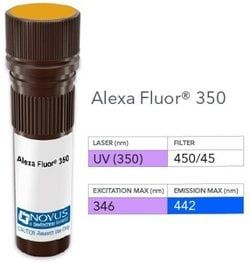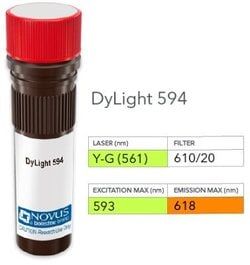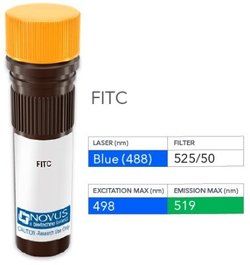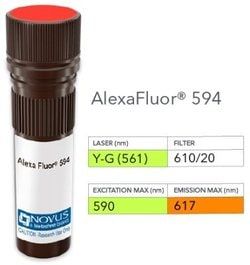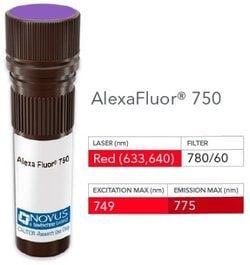Plasma Cell Marker Antibody (SPM310), Alexa Fluor™ 532, Novus Biologicals™
Manufacturer: Novus Biologicals
Select a Size
| Pack Size | SKU | Availability | Price |
|---|---|---|---|
| Each of 1 | NB005888-Each-of-1 | In Stock | ₹ 55,847.50 |
NB005888 - Each of 1
In Stock
Quantity
1
Base Price: ₹ 55,847.50
GST (18%): ₹ 10,052.55
Total Price: ₹ 65,900.05
Antigen
Plasma Cell Marker
Classification
Monoclonal
Conjugate
Alexa Fluor 532
Formulation
50mM Sodium Borate with 0.05% Sodium Azide
Immunogen
Pancreatic cancer-related mucin
Quantity
0.1 mL
Primary or Secondary
Primary
Target Species
Human, Rat (Negative)
Isotype
IgG2a κ
Applications
Immunohistochemistry, Immunohistochemistry (Paraffin)
Clone
SPM310
Dilution
Immunohistochemistry, Immunohistochemistry-Paraffin
Host Species
Mouse
Purification Method
Protein A or G purified
Regulatory Status
RUO
Test Specificity
It recognizes an intra-cytoplasmic antigen, which shows a very high degree of specificity for plasma cells. This antigen is present in normal as well as neoplastic plasma cells. Plasma cells, which are large lymphocytes derived from an antigen-specific B cell, secrete antibodies and are responsible for humoral immunity. Plasma cells differentiate from B cells upon stimulation by CD4+ lymphocytes. The B cell acts as an antigen-presenting cell (APC), consuming an offending pathogen, which is taken up by the B cell by phagocytosis and broken down within proteosomes. Plasma cells contain basophilic cytoplasm; their nucleus contains heterochromatin organized in a characteristic cartwheel arrangement. This monoclonal antibody superbly recognizes normal and neoplastic plasma cells in routine formalin-fixed, paraffin-embedded tissue sections. It is of potential value in identifying myeloma or plasmacytoma in bone marrow or other tissues. It also helps differentiate lympho-plasmacytoid lymphoma
Content And Storage
Store at 4°C in the dark.
Related Products
Description
- Plasma Cell Marker Monoclonal specifically detects Plasma Cell Marker in Human, Rat (Negative) samples
- It is validated for Immunohistochemistry, Immunohistochemistry-Paraffin.
